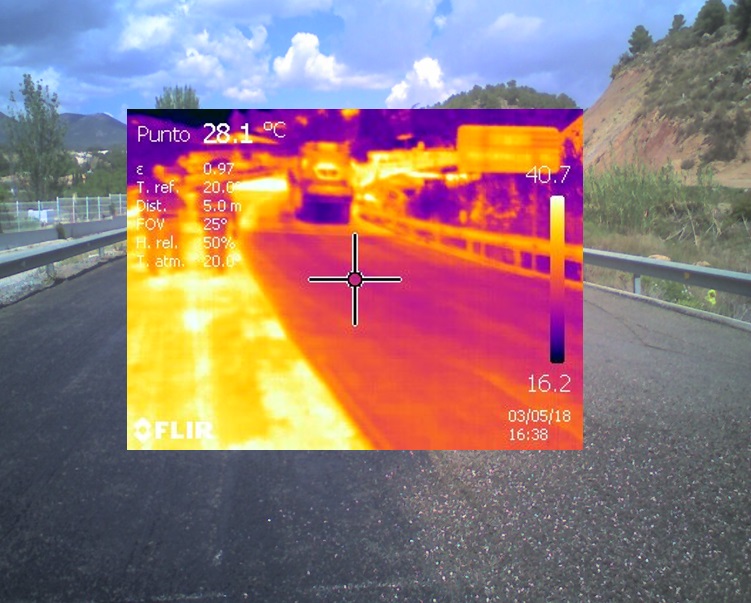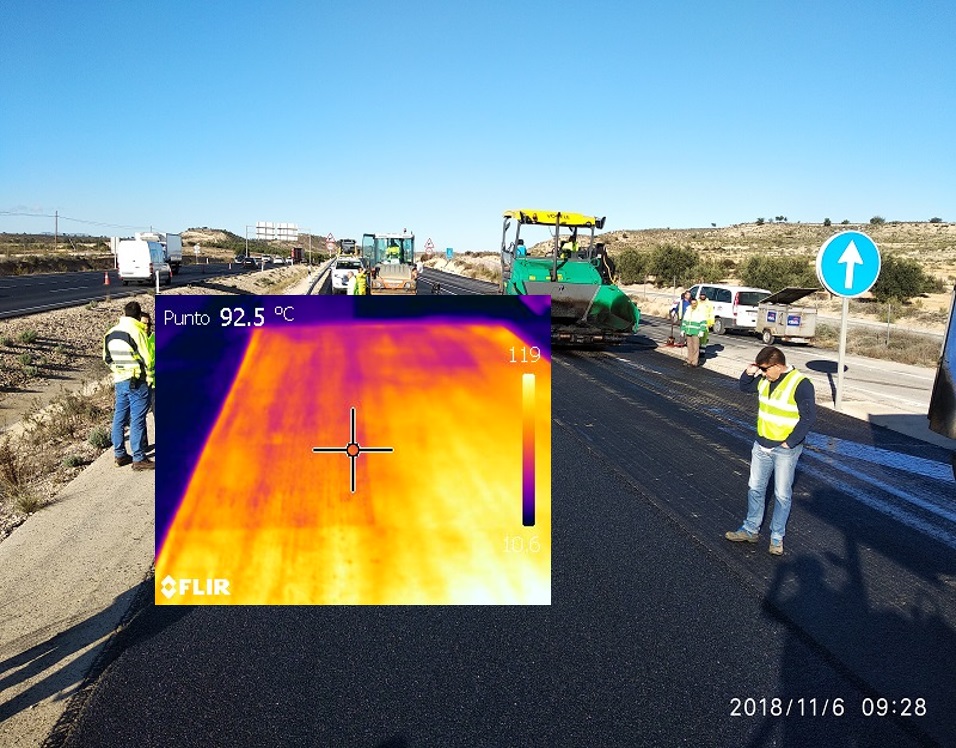Flexible road surfaces have an average service life of about 15 years, after which the surface must be reconditioned. Bitumen and the aggregates of which it is composed are costly, the manufacturing and quarrying processes generate emissions, and the agglomerate creates waste once it reaches the end of its useful life.
As such, Sacyr spearheads and participates in a project that reconditions roads by re-using these materials.
“Sacyr is able to re-use these materials. We re-mill the roadway and mix these materials with products that rejuvenate the bitumen and then resurface the road, thus reducing waste and cost,” explains Miguel Martín, Project Manager in the Engineering, Technology, Innovation and Knowledge department at Sacyr Engineering and Infrastructure.
The process is based on the REPARA 2.0 project, which aims to develop new technologies and methodologies that support infrastructure management and facilitate the rehabilitation and upkeep of all road types. Its goal is to reduce the environmental and economic costs and combat climate change.

Cold recycle mixture.
The name REPARA 2.0 corresponds to the acronym in Spanish for ''Development of new techniques and information systems for sustainable road surface reconditioning,” a name that aims to reflect the overall goal of a multidisciplinary project with several specific objectives.
The REPARA 2.0 project, which has a timeline of 48 months, is supported by CDTI, spearheaded by Sacyr, and includes the participation of seven companies.
Its many milestones focus on developing:
-new techniques for sustainable road surface reconditioning.
-innovation in terms of resilience vis-à-vis climate change.
-innovation in monitoring and detecting the status of road surfaces.
-analysis of the life cycle and its costs.
-innovation in compliance with regulations and the pavement sizing system.
“The implementation of this project, coupled with the development of new binding agents, has allowed us to develop recycled bitumen mixtures that are up to 100% more sustainable and resilient. They have mechanical features similar to those of hot mixtures, suitable for high capacity roads, and can be obtained with minimal energy consumption and emissions generation. In addition, they are manufactured at room temperature (cold technologies), which is a world first,” says Miguel Martín.
Over the course of the project, two test sections were created using two different technologies: cold recycling with alternative binding agents and a sound-reducing recycled warm mixture capable of reducing noise by five decibels relative to a conventional mix.
Sacyr relied on assistance from the Murcia Highway Authority (Demarcación de Carreteras del Estado en Murcia), which facilitated the execution of both test sections where we verified their viability.
